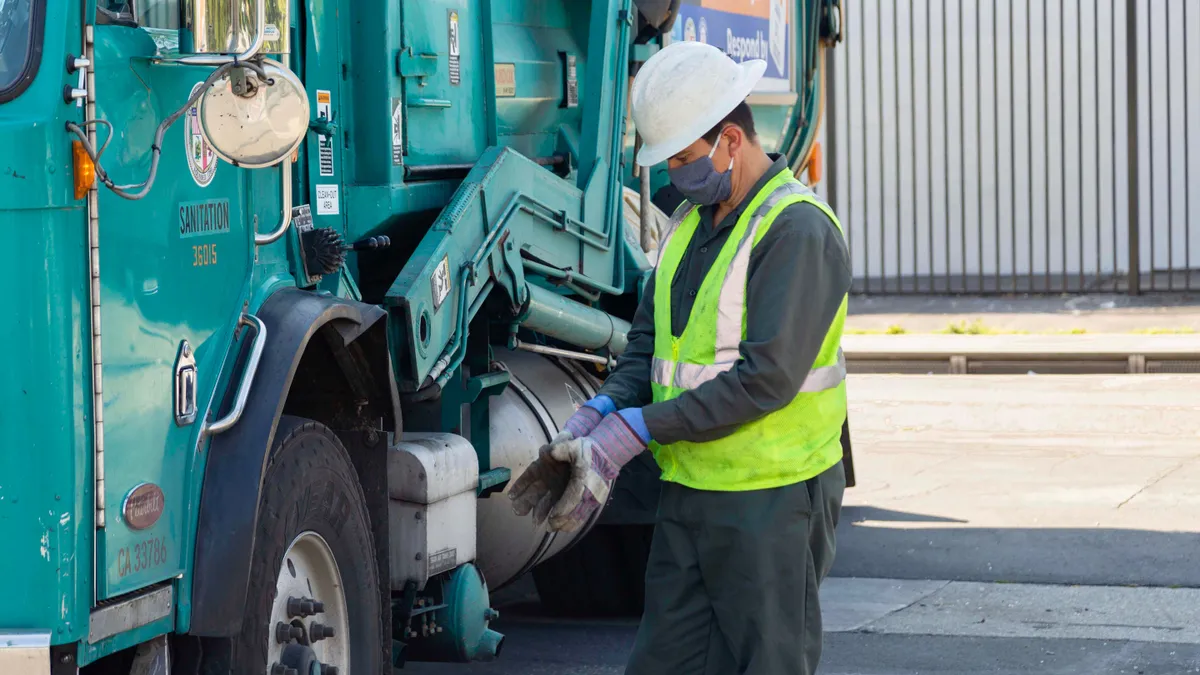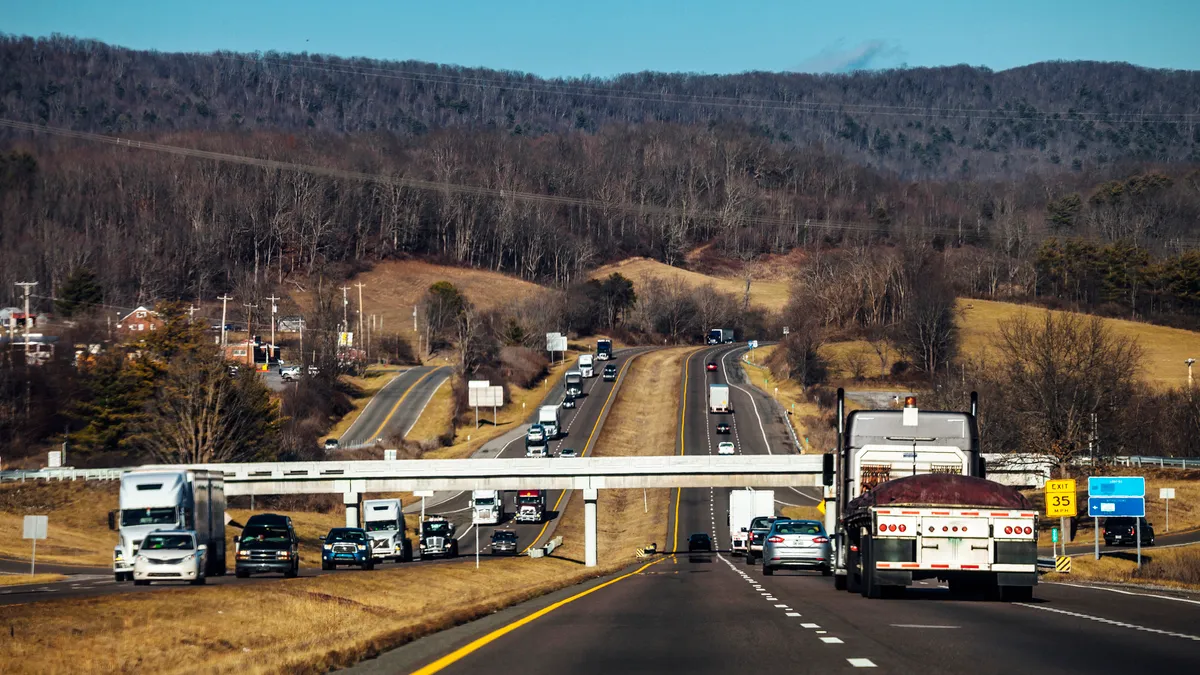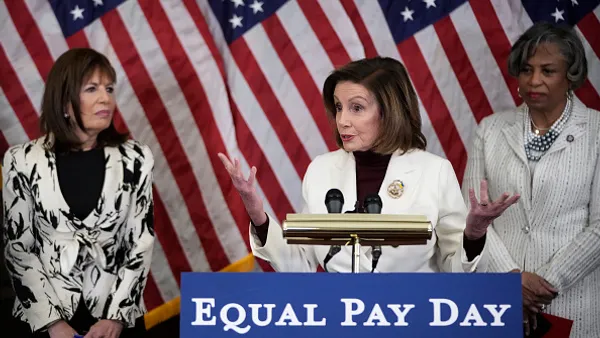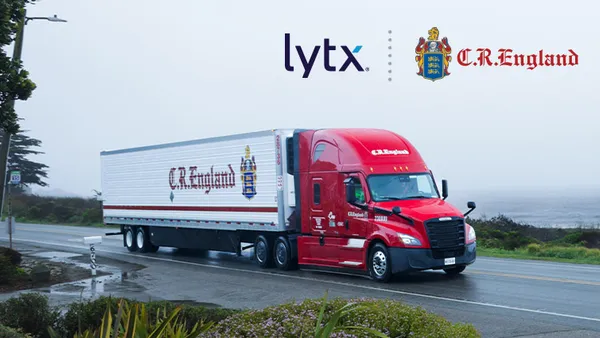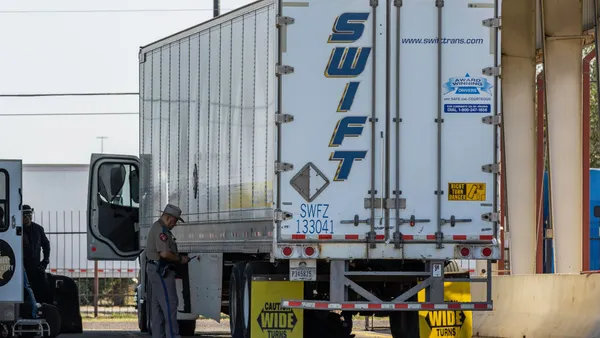Dive Brief:
- States are allowing more businesses to reopen after shutdowns mandated during the pandemic, but COVID-19 is still interfering with the operations of 36% of carriers, according to Morgan Stanley research released Thursday. The most common reason given is "other,” Morgan Stanley analysts reported, which they believe includes lack of freight, closed customers and low rates. Absenteeism is another problem. Ten percent of carriers reported problems getting drivers for routes, as some call out sick or are simply unwilling to risk a coronavirus infection.
- Roughly 68% of carriers, shippers and brokers thought COVID-19 impact would have a lingering and negative impact in 12 months. Negative carrier responses decreased from 80% to 75%, Morgan Stanley found.
- Morgan Stanley has been surveying the 400 entities every two weeks. It found the sentiment about the intensity of COVID-19 impacts improved, but not significantly. Businesses that think impact is "medium" or "low" increased by 3 percentile points, to 81%. "Low" is slowly growing to show an improved optimism, coming in at more than 20%. Morgan Stanley reported that is the highest rate since early March.
Dive Insight:
Morgan Stanley noted there were fewer positive comments in its survey than two weeks prior. A possible concern among carriers, shippers and brokers is an uptick COVID-19 cases. It's a concern shared with lawmakers and governors, who note increasing numbers of COVID-19 cases in Florida, Arizona and Texas. One respondent told Morgan Stanley, "the virus is not done with us."
And lack of freight, closed customers and low rates are easy to document. While many schools, colleges and restaurants are still closed, spot rates are now beginning to recover from deep lows.
DAT reported for the week ending June 7 that national average van, refrigerated and flatbed rates returned to levels seen before shutdowns began in March. The van spot rate was $1.75 per mile, 15 cents higher than the May average; for flatbed, $2.01 per mile, up from $1.90 in May, and reefer was $2.10 per mile, up from $2.02 in May.
Carriers' concerns contrast with procurement managers. A majority told Procurious that coronavirus disuption has either peaked already, or will peak by December. The research firm found 34% of procurement leaders believe coronavirus disruption peaked, while 49% believe a peak will come between June and December, according to a recent survey of 605 procurement and supply chain leaders.
The fear of a second wave, which could mean a new round of business shutdowns, is real among transportation analysts.
"The greatest risk for the economy would be another wave of infections and a pullback in consumer spending," said analyst Steve Graham, wrote on FTR's blog. "We still expect a gradual increase in economic activity. The road to recovery will likely be long, but a second wave of infections would make it longer."
Graham noted lockdowns have been lifted across most of the country and the total number of new coronavirus cases has been trending lower. "But the flattening curve has not been consistent ... Texas reported the highest number of new cases since the pandemic began. Treasury Secretary Steve Mnuchin said the that U.S. cannot have another lockdown, but it is possible for local governments to issue stay-at-home orders," he wrote.


